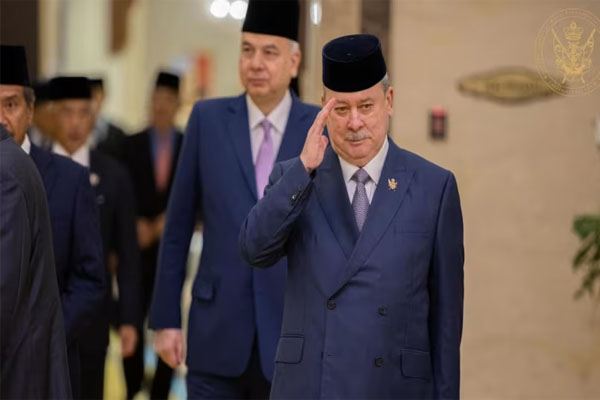Malaysia has recently declared Sultan Ibrahim Sultan Iskandar from the southern state of Johor as its upcoming 17th king. The selection, made by the country’s nine sultans during a Conference of Rulers session, will see Sultan Ibrahim formally installed on January 31 of the next year.
“I hereby inform that the Conference of Rulers, during its 263rd (Special) Meeting, held at the National Palace on Friday, October 27, 2023, has agreed to declare that His Royal Highness Sultan Ibrahim, Sultan of Johor Darul Ta’zim, has been chosen as His Majesty the Yang di-Pertuan Agong XVII for a period of five years commencing from Jan 31, 2024,” the keeper of the Royal Seal said in a statement.
Although the Yang di-Pertuan Agong, or “King of Kings,” serves as a constitutional monarch, recent years have witnessed a more active royal involvement in politics. King Al-Sultan Abdullah, exercising discretionary powers, has played a key role in appointing the last three prime ministers, a trend that began after the 2018 elections and continued through the political shifts of subsequent ruling coalitions.
Sultan Ibrahim, a 64-year-old with a penchant for fast cars and motorbikes, boasts extensive business interests. He is recognized for his annual road trips around Johor, connecting with the people of the state. Trained in flying jets and helicopters, he is described as having the “spirit of a soldier” and excelling in sea activities and extreme sports, according to the royal family’s website. His father previously held the throne as the eighth king from 1984 to 1989.
Originating from the early 16th century, the Johor royal family maintains a private army. For many Malays, particularly in rural areas, royalty continues to serve as a powerful symbol of identity. Sultans are regarded as the guardians of Islam in their respective states, while the king assumes the role of protector of the religion in regions without a hereditary monarch. Notably, Malaysia’s Malay population is predominantly Muslim.
The head of state resides in a purpose-built palace with 22 yellow domes in Kuala Lumpur’s inner western suburbs. Beyond symbolic roles, they also function as the commander-in-chief of the armed forces and hold the authority to grant pardons to convicts.
